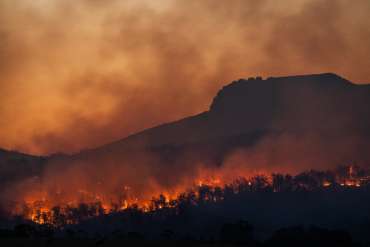The specter of climate change looms over our planet, demanding urgent and decisive action. The scientific consensus is clear: we are facing an unprecedented crisis that threatens the very foundations of our existence. As we witness the devastating impacts of extreme weather events, melting ice caps, and biodiversity loss, it becomes imperative for nations, corporations, and individuals to unite and embrace bold solutions. The time for half-hearted efforts and empty promises is over; we must act decisively to safeguard our planet for future generations.
The consequences of climate change are not a distant threat. They are happening before our eyes. Rising global temperatures are leading to more frequent and severe heatwaves, storms, and wildfires, wreaking havoc on communities and ecosystems. The world’s poorest and most vulnerable populations bear the brunt of these disasters, exacerbating social and economic inequalities. The loss of biodiversity threatens the delicate balance of ecosystems, which underpin our food systems, water resources, and overall well-being. We cannot afford to turn a blind eye to these realities any longer.
Addressing the climate crisis requires strong leadership and collective action at all levels. National governments must step up their commitments to reduce greenhouse gas emissions and transition to clean energy sources. This includes phasing out fossil fuels, investing in renewable energy, and promoting sustainable transportation. The business sector must embrace sustainable practices, innovate in green technologies, and prioritize long-term environmental sustainability over short-term profits. Individual citizens must adopt greener lifestyles, reduce their carbon footprints, and hold their leaders and corporations accountable for their actions.
While the challenges posed by climate change are immense, so too are the opportunities for innovative solutions. Technological advancements have made renewable energy sources more affordable and accessible than ever before. We must capitalize on these opportunities and invest in renewable energy infrastructure on a global scale. Governments should provide incentives for the adoption of clean technologies and create an enabling environment for research and development in the field of sustainability.
Furthermore, promoting sustainable agriculture practices, protecting and restoring forests, and enhancing natural carbon sinks can play a significant role in reducing greenhouse gas emissions. Investing in climate-resilient infrastructure, such as improved water management systems and resilient coastal defenses, can help communities adapt to the changing climate and mitigate the risks associated with extreme weather events.
The climate crisis knows no borders. It is a global challenge that demands global cooperation. International collaboration, such as the Paris Agreement, provides a framework for nations to work together toward a common goal. However, more needs to be done. Wealthier nations must fulfill their commitment to providing financial and technological assistance to developing countries, helping them build climate resilience and transition to sustainable development pathways. The transfer of technology, capacity-building, and knowledge-sharing should be prioritized to ensure that no country is left behind in the fight against climate change.
The clock is ticking, and we cannot afford to delay action any longer. The urgency of the climate crisis requires us to be bold, ambitious, and unwavering in our pursuit of solutions. It is not just a matter of environmental conservation; it is a matter of human survival. Let us seize this moment as an opportunity to redefine our relationship with the planet and pave the way for a sustainable and prosperous future. Together, we can build a world where the forces of nature are respected, where the well-being of all living beings is valued, and where future generations can thrive. The time for action is now.

